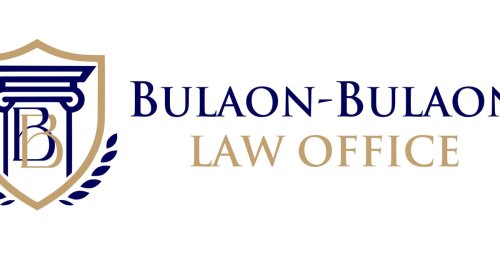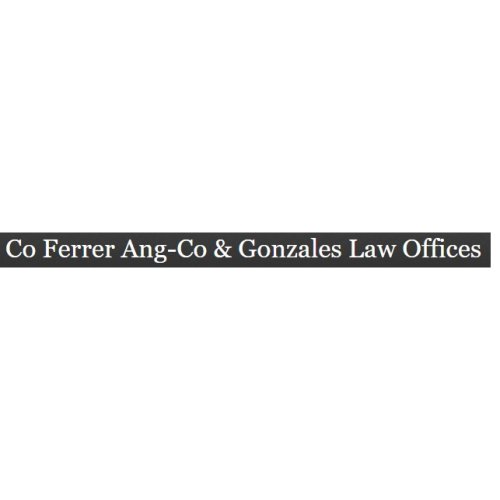Best Lawyers in San Juan
Share your needs with us, get contacted by law firms.
Free. Takes 2 min.
List of the best lawyers in San Juan, Philippines
Philippines Legal Questions answered by Lawyers
Browse our 263 legal questions in Philippines and read the lawyer answers, or ask your own questions for free.
- Separated but not legally - financial status
- My husband and I have been separated (not legally) since October 2025. The separation is not formal, as I chose to leave our home due to the verbal and emotional abuse I experienced daily. My husband has not worked for the past eight years, and I have been the sole... Read more →
-
Lawyer answer by Recososa Law Firm
Hello: Thank you for sharing your situation. I understand how emotionally exhausting this must be for you. I am the owner of Recososa Law Firm, and we are located in the Philippines, with offices in Luzon, Visayas, and Mindanao. Presuming...
Read full answer - Spouse separated in fact - financial status disclosure
- My husband and I have been separated (not legally) since October 2025. The separation is not formal, as I chose to leave our home due to the verbal and emotional abuse I experienced daily. My husband has not worked for the past eight years, and I have been the sole... Read more →
-
Lawyer answer by Recososa Law Firm
Hello: Thank you for sharing your situation. I understand how emotionally exhausting this must be for you. I am the owner of Recososa Law Firm, and we are located in the Philippines, with offices in Luzon, Visayas, and Mindanao. Presuming...
Read full answer - is the 200k annulment fee has to be paid i full?
- me and my ex has been separated for almost 16 years. i really want an annulment. we got married as soon as we turned 18. i didn't get any consent from my parents. and my ex doesn't have work up until now.
-
Lawyer answer by ERLAW
Atty. Roque here, an annulment lawyer from Roque Law Office. Based on what you shared, being separated for 16 years alone is not yet a ground for annulment under Philippine law. However, getting married at 18 without parental consent may...
Read full answer
Philippines Legal Articles
Browse our 18 legal articles in Philippines written by expert lawyers.
- Managing Labor Inspections for BPOs in the Philippines
- Managing Labor Inspections for BPO Companies in the Philippines The Department of Labor and Employment (DOLE) conducts unannounced inspections to verify compliance with General Labor Standards and Occupational Safety and Health standards. BPO companies must maintain meticulous payroll records covering the past three years to prove payment of night shift... Read more →
- Set Up a Foreign-Owned Corporation in the Philippines
- Setting Up a Foreign-Owned Domestic Corporation in the Philippines Key Takeaways Foreign investors can successfully incorporate and operate within the Philippine market by following highly structured national and local regulations. Successfully establishing your business requires understanding foreign ownership limits, meeting specific capital requirements, and navigating multiple government agencies. The Foreign... Read more →
- Guide to BSP Fintech Regulatory Compliance in the Philippines
- Fintech companies in the Philippines are primarily regulated by the Bangko Sentral ng Pilipinas (BSP) under the Manual of Regulations for Non-Bank Financial Institutions. Minimum capital requirements range from PHP 20 million to PHP 200 million, depending on the license type and business model. All fintech startups must register with... Read more →
About Hiring a Lawyer in San Juan, Philippines
Hiring a lawyer in San Juan, Philippines, is a process that typically begins with identifying your legal needs. Whether you're dealing with a family matter, business dispute, or any other legal issue, it is crucial to find a lawyer who specializes in the relevant field. Lawyers can be sourced through law firms, bar associations, or personal recommendations. When seeking legal assistance, it is important to verify the lawyer’s credentials, including their membership with the Integrated Bar of the Philippines (IBP) and any specialized certifications they may have.
Why You May Need a Lawyer
Legal assistance may be necessary in a variety of situations in San Juan, Philippines. Common scenarios include family law matters such as divorce or child custody, disputes over property or real estate, criminal defense, and business-related issues like contract disputes or intellectual property concerns. Lawyers are also essential for navigating the legal complexities of starting or closing a business, estate planning, and handling cases of personal injury or accidents.
Local Laws Overview
Laws in San Juan, Philippines, are governed by a combination of national laws and local ordinances. Understanding local regulations, especially those relating to property dealings, taxation, business permits, and community conduct, can be crucial. It is also important to be aware of the local implementation of national laws related to civil and criminal matters. Lawyers in San Juan are often familiar with navigating these legal frameworks and can provide necessary guidance and representation.
Frequently Asked Questions
How do I find a reputable lawyer in San Juan?
To find a reputable lawyer in San Juan, you can search for law firms that have positive reviews and recommendations from past clients, check the IBP directory, or attend initial consultations to gauge their expertise.
What is the cost of hiring a lawyer?
The cost of hiring a lawyer in San Juan, Philippines, varies depending on the complexity of the case, the lawyer's experience, and the type of legal service required. Most lawyers charge hourly rates or offer flat fees for specific services.
Can I represent myself in legal proceedings?
While it is possible to represent yourself in legal proceedings, it is not recommended due to the complexity of legal systems and procedures. A lawyer can provide expertise and improve the chances of a favorable outcome.
How do I verify a lawyer's credentials?
You can verify a lawyer's credentials by checking their membership with the Integrated Bar of the Philippines and any specialization certificates they hold. It is also helpful to research their professional experience and reputation.
What should I bring to my first meeting with a lawyer?
Bring any relevant documents related to your case, such as contracts, court notices, or personal identification. Being well-prepared can help the lawyer understand your situation better and provide more accurate advice.
How long does it take to resolve a legal case?
The duration of a legal case in San Juan can vary widely depending on the complexity of the matter, the efficiency of the court system, and the willingness of parties to cooperate. Simple cases may resolve quickly, while complex ones could take months or years.
Are there legal aid services available?
Yes, there are legal aid services available in the Philippines, often provided by non-profit organizations or government bodies such as the Public Attorney's Office for those who qualify for assistance.
What is the Integrated Bar of the Philippines?
The Integrated Bar of the Philippines (IBP) is the national organization of lawyers in the Philippines. It regulates the legal profession and provides resources and support to its members.
Can a lawyer help with out-of-court settlements?
Yes, lawyers often assist in negotiating out-of-court settlements, which can be a quicker and less expensive alternative to litigation.
What should I do if I’m not satisfied with my lawyer's service?
If you are not satisfied with your lawyer's service, you can discuss your concerns directly with them. If the issue persists, consider seeking a second opinion or lodging a complaint with the IBP.
Additional Resources
For more information or assistance, you can reach out to the following resources:
- Integrated Bar of the Philippines
- Local legal aid clinics and non-profit organizations offering legal services
- San Juan City Hall's legal department for local ordinance enquiries
- The Public Attorney's Office for those needing government-provided legal aid
Next Steps
After identifying your legal needs, create a list of potential lawyers or law firms specialized in your area of concern. Schedule initial consultations to discuss your case and evaluate the lawyer's understanding and compatibility with your needs. Ensure to inquire about their fee structures and approach to handling cases similar to yours. Once you have decided, formally engage their services and cooperate fully to achieve the best possible outcome.
Lawzana helps you find the best lawyers and law firms in San Juan through a curated and pre-screened list of qualified legal professionals. Our platform offers rankings and detailed profiles of attorneys and law firms, allowing you to compare based on practice areas, experience, and client feedback.
Each profile includes a description of the firm's areas of practice, client reviews, team members and partners, year of establishment, spoken languages, office locations, contact information, social media presence, and any published articles or resources. Most firms on our platform speak English and are experienced in both local and international legal matters.
Get a quote from top-rated law firms in San Juan, Philippines — quickly, securely, and without unnecessary hassle.
Disclaimer:
The information provided on this page is for general informational purposes only and does not constitute legal advice. While we strive to ensure the accuracy and relevance of the content, legal information may change over time, and interpretations of the law can vary. You should always consult with a qualified legal professional for advice specific to your situation.
We disclaim all liability for actions taken or not taken based on the content of this page. If you believe any information is incorrect or outdated, please contact us, and we will review and update it where appropriate.
Refine your search by selecting a practice area.































